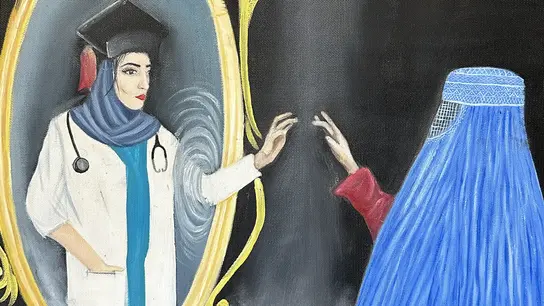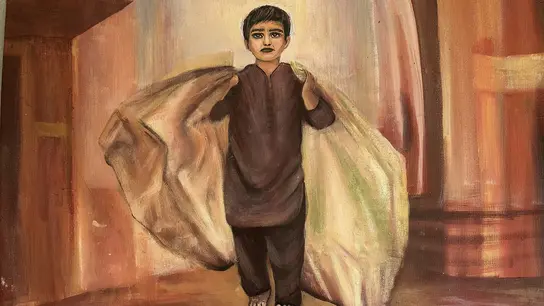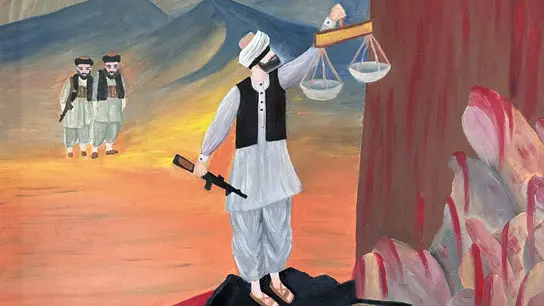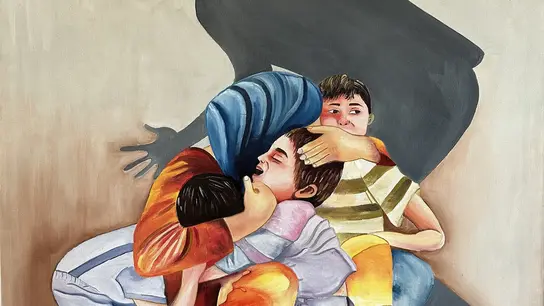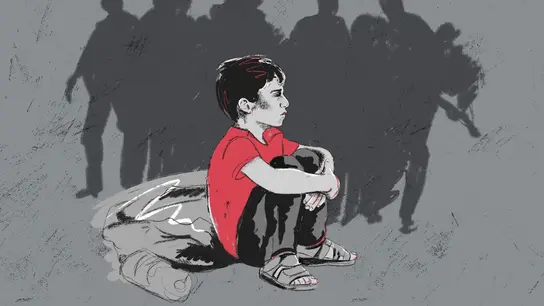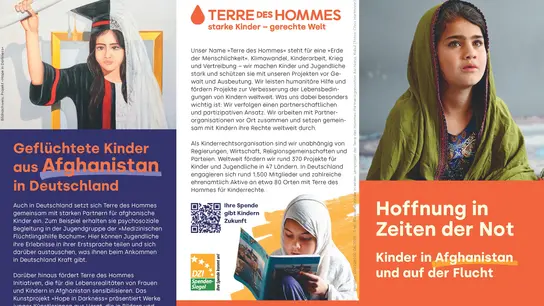Why children flee from Afghanistan to Germany
Afghanistan has been one of the main countries of origin for refugee children and young people in Germany for decades. With the Taliban's renewed takeover of power in 2021, the situation in the country has dramatically worsened again, particularly for children and young people. At the same time, Afghanistan is currently becoming the focus of attention in Germany, especially in debates about migration defense: The German government wants to end the federal reception program for particularly vulnerable people, deportation flights are publicly presented as political successes, and protection rates for asylum seekers from Afghanistan have recently fallen dramatically. The report "'They Don't See Us as Human Beings' - Why Children from Afghanistan Flee to Germany" therefore focuses on a question that is often neglected in public: Why are children and young people fleeing to Germany - what are they seeking protection from? It highlights contradictions between the real situation in the country and the public debate in Germany.
Order or download brochure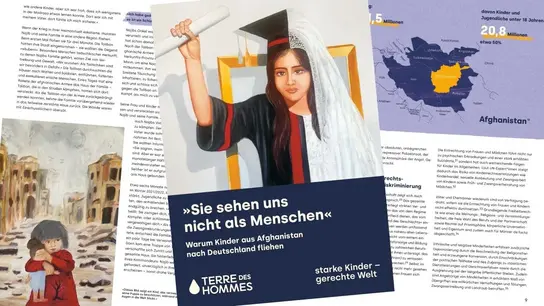
Brochure “They don’t see us as human beings”
You can download the report "'They Don't See Us as Human Beings' – Why Children from Afghanistan Are Fleeing to Germany" as a PDF from our materials shop or order it free of charge as a bound brochure.
Order or downloadFour young people tell their story
The reasons why children and young people flee Afghanistan are diverse. Using concrete case studies, we present at least some of the reasons and stories. These stories illustrate that children who flee Afghanistan to Germany have often experienced a variety of violence in their country of origin and while fleeing. But they are also young people with their own worries, hopes, and dreams.
To protect the young people, pseudonyms are used throughout. Details such as locations have been partially altered for security reasons, but the statements of the young people and the case scenario remain unchanged.
The demands of Terre des Hommes
Safe escape routes save lives: Therefore, admission and resettlement programs must be urgently maintained and expanded. Application processing procedures must be made more efficient and more sensitive to the conditions in the regions of origin and the needs of those seeking protection. Commitments to a legal right to protection must be honored. Family reunification procedures must be accelerated, capacities expanded, and long waiting times shortened – because waiting times mean ongoing danger and unbearable separation for children and their families.
Children from Afghanistan have a right to protection in Germany: Upon returning to Afghanistan, they and their families face the threat of torture, inhuman and degrading treatment, impoverishment, and, in the worst case, death. Therefore, they must be granted refugee status or subsidiary protection, depending on their individual circumstances. Child-specific reasons for fleeing must always be examined and given special consideration. Children and families from Afghanistan who are living in Germany only with a temporary suspension of deportation (Duldung) require reliable options for obtaining the right to remain, rather than years of uncertainty. Terre des Hommes opposes deportations to Afghanistan.
Arrival requires support and opportunities for participation: For children to find a home in Germany, they need child-friendly accommodation and unrestricted access to educational opportunities and psychosocial care. Furthermore, young people from Afghanistan must be heard in the debates that determine their future: Their experiences and their diverse contributions to society must be made visible to the public and incorporated into political decisions. This requires financial and structural support for youth self-organizations and young activists with a refugee background.
How Terre des Hommes helps in Afghanistan and along the refugee routes
For many years, Terre des Hommes together with partner organizations from local civil society, has supported children and young people in Afghanistan, along the refugee routes, and in Germany. Together, we provide psychosocial and therapeutic support, educational and sports programs, and legal advice. This work repeatedly demonstrates that children and young people need spaces where they can be children, where they are taken seriously and heard.
Your contact person

Teresa Wilmes
Speaker Germany and European Program

